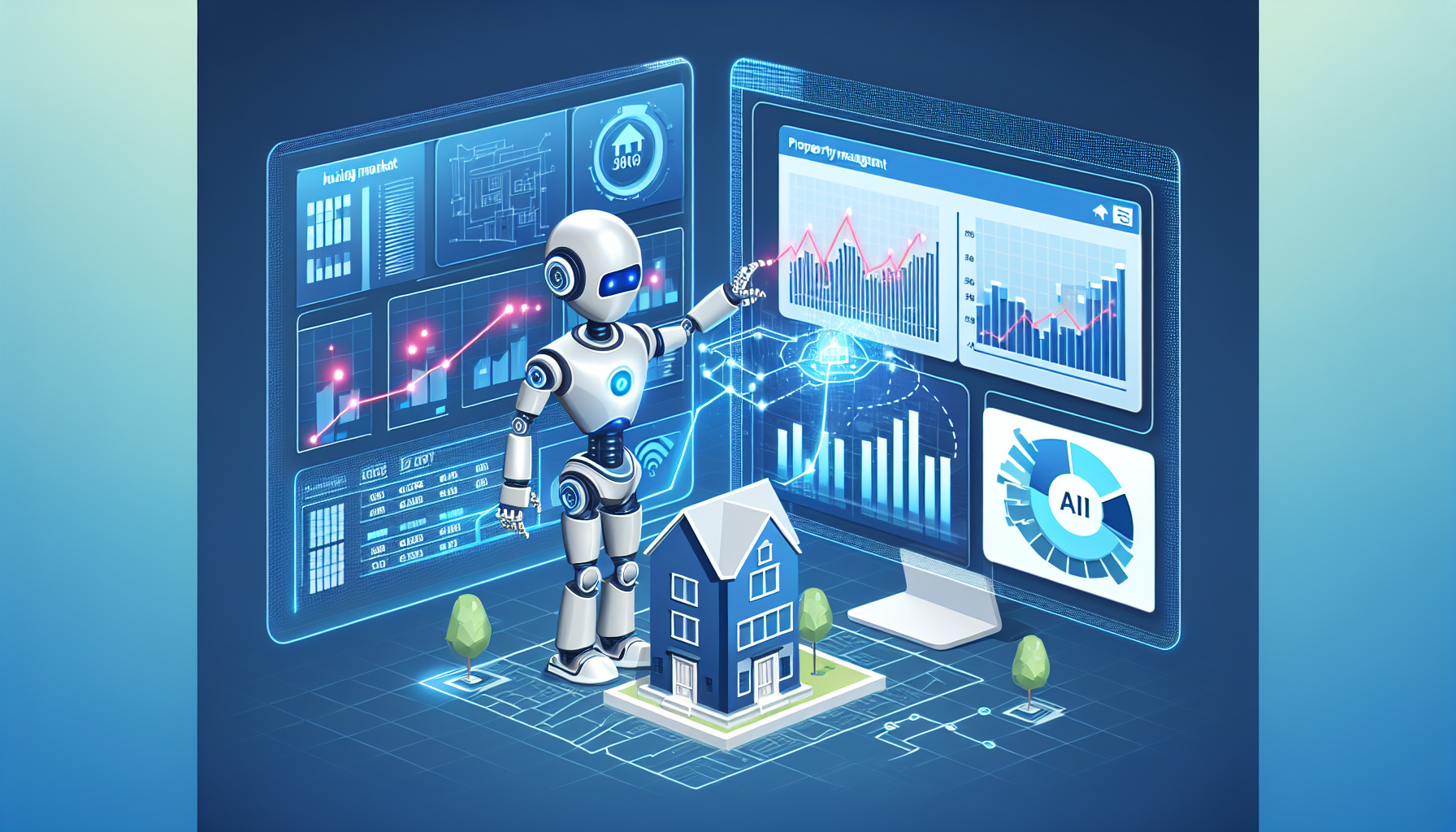Real Estate Meets Technology: How AI is Changing Property Management
1. The Rise of AI in Property Management
Artificial Intelligence (AI) is rapidly transforming various sectors, and property management is one of the most affected fields. With the integration of machine learning algorithms and advanced data analytics, AI enhances operational efficiency, reduces costs, and improves tenant satisfaction. Property managers now leverage AI tools to streamline processes such as tenant screening, maintenance management, and financial analysis, providing a more efficient management experience.
2. Enhancing Tenant Screening
Tenant screening traditionally involves a labor-intensive process of background checks, credit evaluations, and rental history assessments. AI simplifies this by utilizing algorithms to analyze data and predict tenant behavior. Machine learning models can evaluate a potential tenant based on historical data, comparing them against profiles of reliable tenants. By automating such evaluations, property managers can save time while reducing the risk of renting to problematic tenants.
3. Automated Maintenance Management
AI-powered platforms offer predictive maintenance management, which is a game changer for property management. These platforms analyze data from various sources, such as past maintenance logs and real-time sensor data, to predict when appliances or systems are likely to fail. This foresight enables property managers to schedule maintenance proactively, thereby minimizing downtime and improving tenant satisfaction. For example, IoT sensors in HVAC systems can report abnormalities, prompting immediate action before a major breakdown occurs.
4. Virtual Tours and Leasing
With advancements in virtual reality (VR) and augmented reality (AR), prospective tenants can explore properties through virtual tours. AI systems analyze user engagement with the virtual tour and provide insights into which features attract the most interest. This data helps property managers modify listings and tailor marketing strategies to meet prospective tenants’ desires. Furthermore, AI chatbots can assist potential tenants 24/7, answering questions and facilitating the leasing process without human intervention.
5. Improved Rent Collection
AI tools simplify the rent collection process using automated payment systems. These systems can send reminders, process payments accurately, and generate detailed reports on collections. If a payment is late, AI systems can automatically generate notifications and escalate issues as necessary. This automation minimizes human error and disputes regarding rent payments, creating a smoother experience for both tenants and property managers.
**6. AI in Market Analysis]
AI’s analytical capabilities extend beyond property management tasks; they are invaluable in market analysis as well. AI algorithms can analyze vast amounts of market data, identifying trends and predicting changes in rental prices or property values. This information is crucial for property managers and investors, enabling them to make informed decisions about property acquisitions, pricing strategies, and market positioning. Predictive analytics allow for timely responses to shifts in the market, ensuring property portfolios remain competitive.
7. Enhancing Communication and Transparency
AI chatbots are transforming communication between property managers and tenants. These virtual assistants are available 24/7, responding instantly to tenant inquiries and facilitating communication regarding maintenance requests or leasing questions. Moreover, AI can analyze communication patterns and tenant feedback, allowing property managers to address common issues proactively. By improving transparency and responsiveness, AI ensures tenants feel valued and cared for, which helps retain them over time.
8. Data-Driven Decision Making
The integration of AI in property management enables data-driven decision-making. By accumulating and analyzing data from various sources, AI provides insights that guide strategic planning. For instance, property managers can leverage tenant feedback to enhance amenities and services offered, thus attracting new tenants and retaining existing ones. This data-driven approach shifts property management from reactive to proactive, improving overall property performance.
9. Streamlining Administrative Tasks
AI’s role in automating administrative tasks cannot be overlooked. Routine tasks such as tenant onboarding, lease renewals, and record-keeping are increasingly being handled by AI-powered platforms. Automation of these tasks reduces administrative burdens and errors, allowing property managers to focus on more strategic activities that enhance property value. Additionally, AI systems can generate reports on property performance metrics, enabling managers to track progress over time easily.
10. Ethical Considerations and Challenges with AI Use
While the advancements in AI present numerous benefits, ethical considerations cannot be ignored. The reliance on AI for tenant screening raises concerns about fair housing practices and potential biases in algorithms. Property managers must ensure compliance with regulations and ethical standards in all AI-driven processes. Additionally, the security of sensitive tenant information is paramount. Implementing strong cybersecurity measures and maintaining transparency about data usage are critical considerations for property managers embracing AI technologies.
11. The Future of AI in Property Management
The future of AI in property management is promising, with continuous advancements expected. As AI technology becomes more sophisticated, we may witness even greater automation and intelligence in property management tasks. For instance, enhanced AI systems could offer more predictive insights, guiding property managers on future maintenance needs and market trends. The potential for integration with other technologies, such as blockchain for secure transactions, also hints at a more interconnected and efficient real estate ecosystem.
12. Conclusion
AI is undeniably transforming the landscape of property management by enhancing efficiency, cost-effectiveness, and tenant engagement. As property managers adapt to these advancements, the focus will likely shift towards embracing innovative technologies in their operations. The ongoing evolution of AI will ensure that property management not only meets the needs of today’s tenants but is also poised to face the challenges of tomorrow’s real estate environment. This intersection of real estate and technology marks a significant turning point, paving the way for smarter, data-driven property management solutions that will shape the future of the industry.


